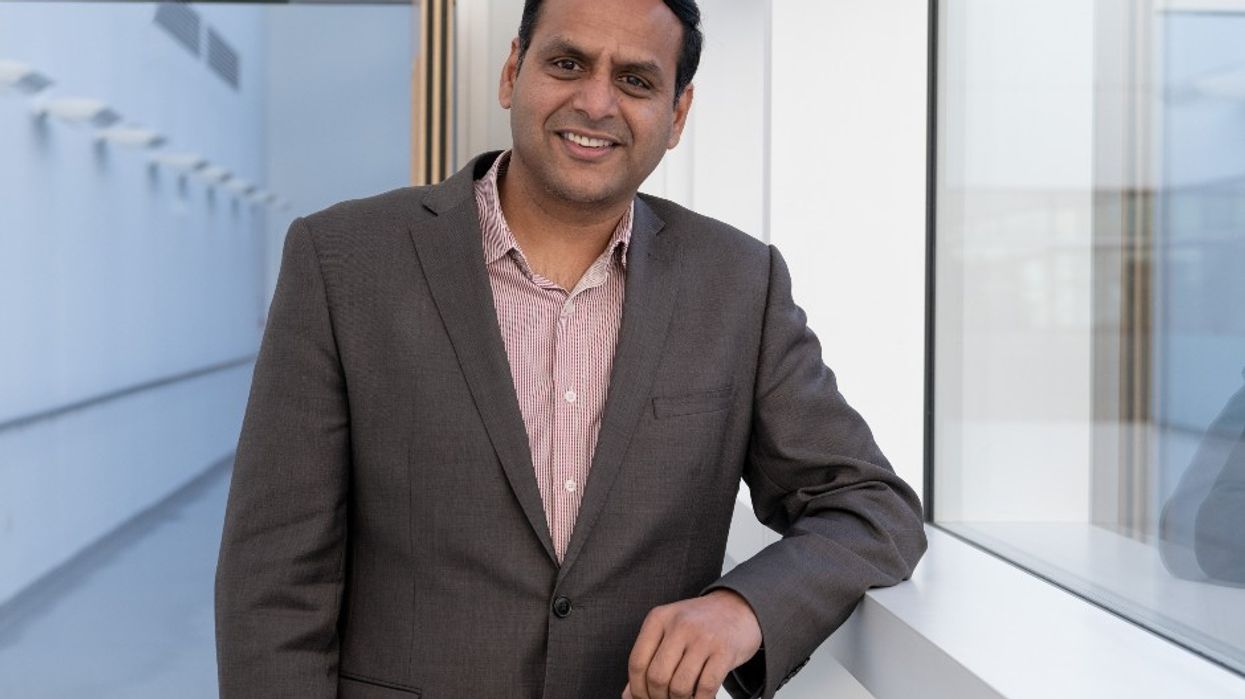A British Indian doctor battled for five hours to save a man’s life after the passenger went into cardiac arrest twice on a flight to India.
Dr Vishwaraj Vemala, a consultant hepatologist at University Hospitals Birmingham, responded when the cabin crew on board the 10-hour-flight frantically started calling for a doctor when a passenger went into cardiac arrest.
A 43-year-old man, with no previous medical history, had collapsed in the aisle of the airplane and went into cardiac arrest. He did not have a pulse and was ot breathing, a statement from the University Hospitals Birmingham said.
Dr Vemala, who was flying from the UK to India to take his mother back to Bangalore, attended to the passenger and twice resuscitated him.
After asking the other passengers on board, Dr Vemala was also able to get his hands on a heart-rate monitor, blood pressure machine, pulse oximeter and glucose meter to keep an eye on the patient’s vital signs.
While speaking with Dr Vemala, the passenger went into cardiac arrest for a second time. This time it took longer to resuscitate him.
“Dr Vishwaraj Vemala, one of our consultant hepatologists, saved the life of a passenger who suffered two cardiac arrests mid-flight. With limited supplies, Dr Vemala was able to resuscitate him before handing over to emergency crews on the ground,” tweeted University Hospitals Birmingham.
The Birmingham doctor said that it took about an hour of resuscitation before he was able to get him back.
"During this time, I asked the cabin crew on board if they had any medication. Luckily, they had an emergency kit, which to my utter surprise, included resuscitative medication to enable life support," Dr Vemala said.
“Apart from oxygen and an automated external defibrillator, there was no other equipment on board to monitor how he was doing.”
Dr Vemala said: “In total, he was without a good pulse or decent blood pressure for nearly two hours of the flight, alongside the cabin crew, we were trying to keep him alive for five hours in total.
“It was extremely scary for us all, especially the other passengers, and it was quite emotional.”
Though Dr Vemala and the pilot tried to get permission to land at the nearest airfield in Pakistan, the request was denied. However, the pilot arranged for a landing at Mumbai airport where emergency crews took over and the patient was taken to safety.
The doctor added: “I remember it was extremely emotional for us all when we heard we could land in Mumbai. By the time we landed the passenger had been resuscitated and was able to speak with me. Nevertheless, I insisted he go to a hospital to be checked over,” he said.
“Obviously during my medical training, it was something I had experience dealing with, but never 40,000 feet in the air!
“It was also the first time in my seven years as a consultant that my mum had seen me ‘in action’ so to speak, so that made it even more emotional – she was crying a lot.”
Dr Vemala further said: “The patient thanked me with tears in his eyes. He said: ‘I am forever indebted to you for saving my life’. This was indeed a moment that I will remember for rest of my life.”
Dr Vemala graduated from Bangalore University in 1999, and completed post graduate training in Bangalore in 2002.
He completed basic specialist training in London (2006) at St George's University Hospital. Later, he undertook a period of research in the Dame Sheila Sherlock Liver Unit at the Royal Free, London (2009).
He also works as a Consultant Hepatologist in University Hospitals of Leicester.





